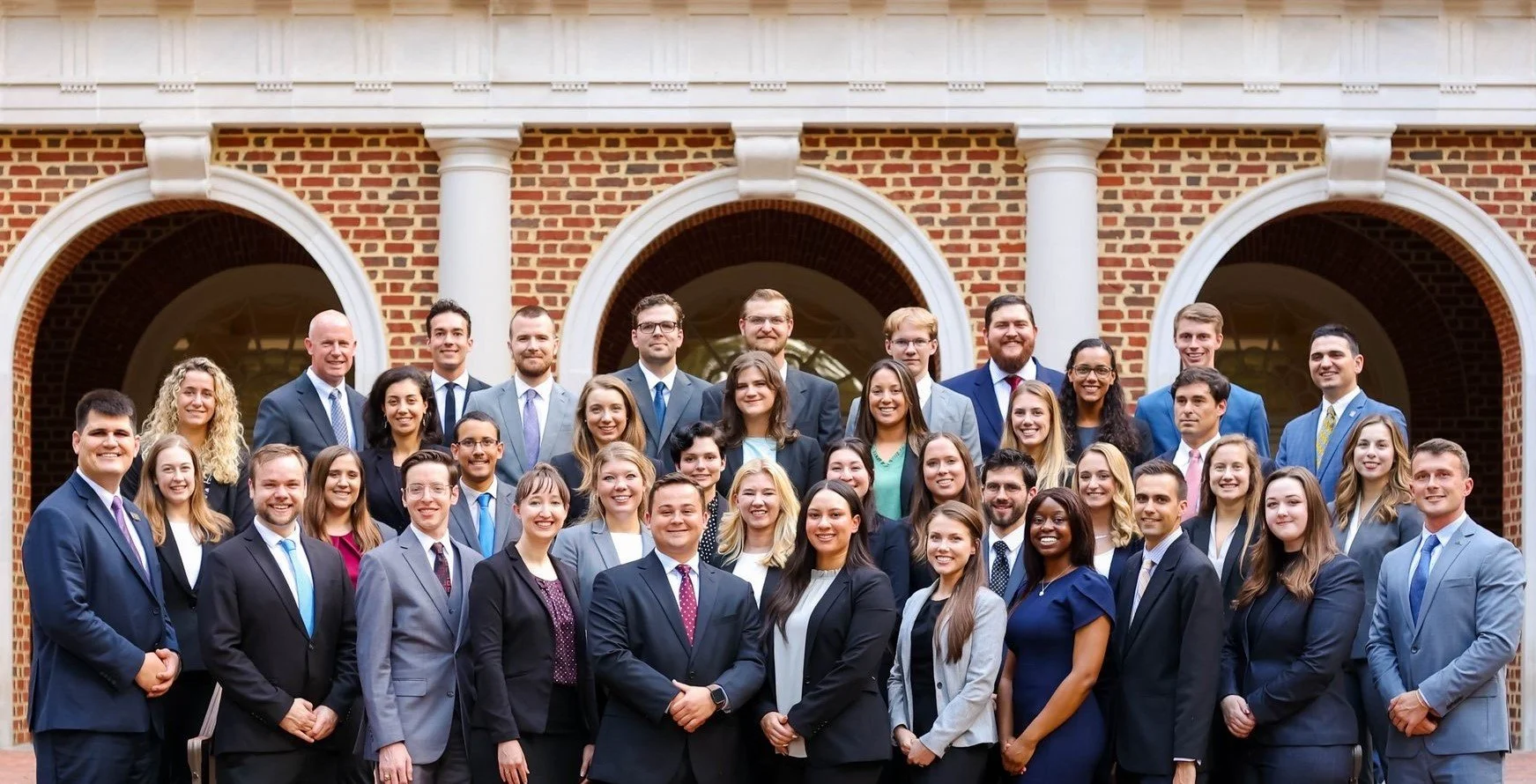Mission
The mission of Law Review is to bring glory to God and to make the character and person of Jesus Christ known through the publication of excellent and principled legal scholarship.
Law Review strives to achieve this mission in the following ways:
1. The publication of well-written scholarship that demonstrates the application of Christian principles to legal issues;
2. The publication of well-written scholarship that benefits the practicing bar;
3. The training of Law Review members in legal writing and editing; and
4. The equipping of Law Review members for effective leadership in the legal community.
2024-2025
Regent University Law Review Board of Editors
Editor-in-Chief
Lia Willis
Executive Board Members
Executive Editors
Bryce Goodwyn
Jonathan Monnin
Managing Editors
Joshua Ehst
Bryn DePaul
Abbagail Badley
Matthew Beihoff
Miranda Neal
Matthew Abbott
Senior Editors
Dylan Robertson
Karlee Fretz
McKenzie Knaub
Michael Wahl
Danielle Bagenski
Grace Henson
Benjamin Hands
Pro Tempore Editor
Nathan Sybrandy
Be a Staff Editor
The Editor Selection process...
At the conclusion of each spring semester, Regent University Law Review hosts a writing competition open to all students with a cumulative GPA of 3.00 or higher over at least two full semesters (30 credit hours) of study. Every student interested in joining the Law Review must complete the Spring Writing Competition, which consists of two parts:
(1) a Bluebook exercise designed to gauge citation proficiency, and
(2) the creation of an article in law review style. The topic for the article is chosen by the Board of Editors and is the same for all applicants, and research is limited to a list of provided resources.
Students typically have approximately two to three weeks to complete their submissions. The Board then grades and ranks the submissions using a combined score from both the Bluebook exercises and the article. Rising 2L students who rank among the top 5% of their class and score in the top half of all submissions on the Bluebook portion of the Writing Competition, or score at least a 70% on the Bluebook portion of the Writing Competition, are extended an invitation to join the Law Review. All other invitations are made on the basis of the students’ scores and the Law Review’s needs for the upcoming year. Membership offers are extended sometime in late June or early July.
All students interested in academic writing are strongly encouraged to participate in the Spring Writing Competition.

